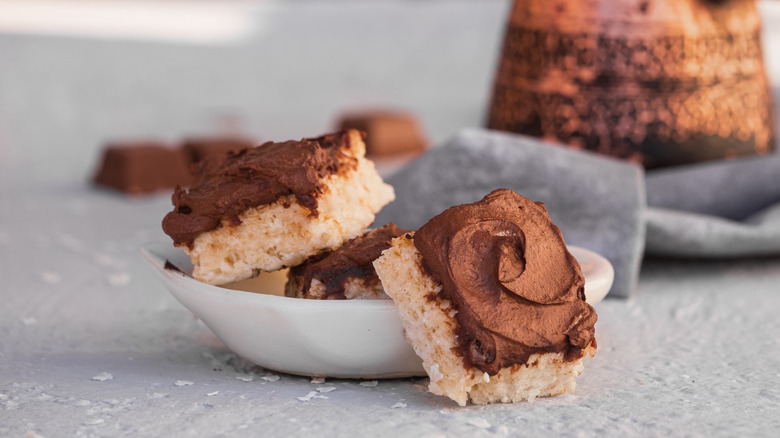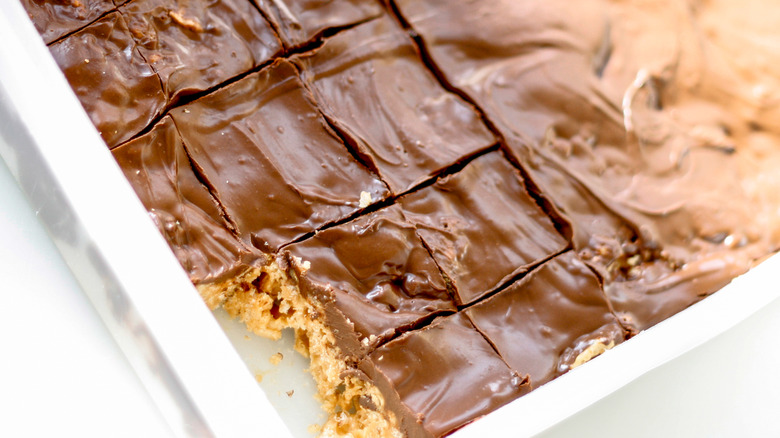Scotcheroos: The Lesser Known Spinoff Of Rice Krispie Treats
Soon after Kellogg's creation of Rice Krispies, the world set about developing tasty recipes to use the cereal in. The dessert we now know as the Rice Krispie Treat made its first print appearance in 1938, per National Today, when it was recorded in a cookbook written by Lucy Maltby. However, the version using only cereal, butter, and marshmallows is accredited to Kellogg's employee Mildred Day, who, according to the Des Moines Register, opted for marshmallows over the molasses used in earlier recipes.
Over the next few decades, variations of the Rice Krispie Treat recipe would be included on cereal boxes and in countless cookbooks as a simple treat that anyone could make. Given the treat's popularity, Kellogg's introduced a similar dessert called Scotcheroos. Sadly, this decadent spinoff didn't get nearly as much attention as the original Rice Krispie Treat, which is why many of us haven't even heard of it. So, what exactly is a Scotcheroo?
Kellogg's Scotcheroos are the treat we didn't know we needed
As great as Rice Krispie Treats are, the Scotecheroo might just be better, and you'll see why in just a moment. According to Salt & Baker, Scotcheroos are as easy to prepare as Rice Krispie Treats. They require only a few more ingredients than Rice Krispie Treats — peanut butter, butterscotch chips, chocolate chips, sugar, and corn syrup. Do you see where we're going with this?
To make a long story short, you mix together your ingredients (minus the butterscotch and chocolate chips) on the stovetop, then melt your chips into a delicious topping. And voila, you've got the best dessert in the state of Iowa.
A TikTok user helpfully provided a tutorial, including measurements, commentary, and of course, a raving review. They note at the start of the video that the recipe is from 1965, which begs the question of how on earth we've never heard of or experienced these treats. Indeed, the recipe for Scotcheroos is even listed on the Kellogg's Rice Krispies website, so it's not like anyone's been hiding this from us. Perhaps we've just been living under a rock.

